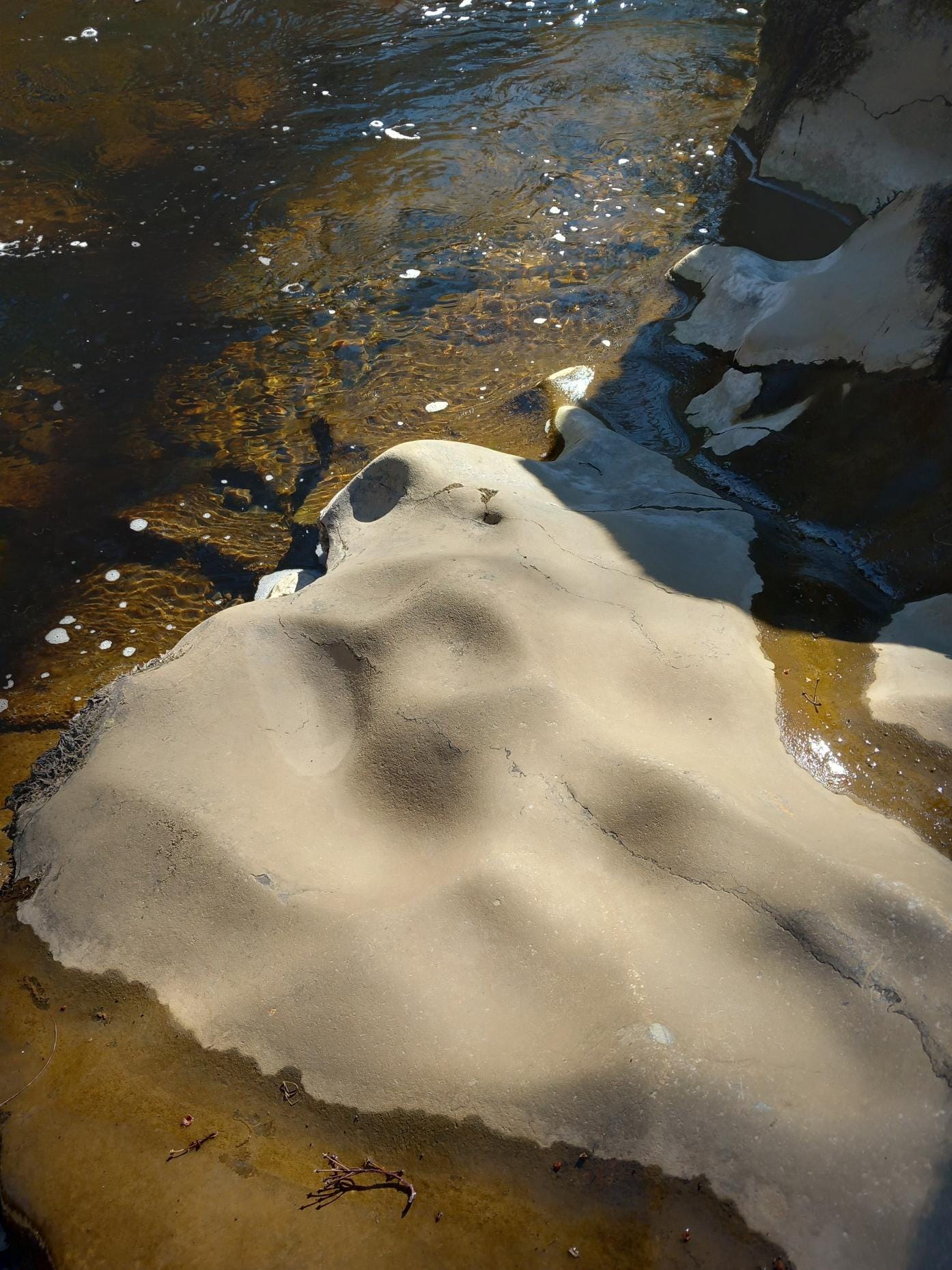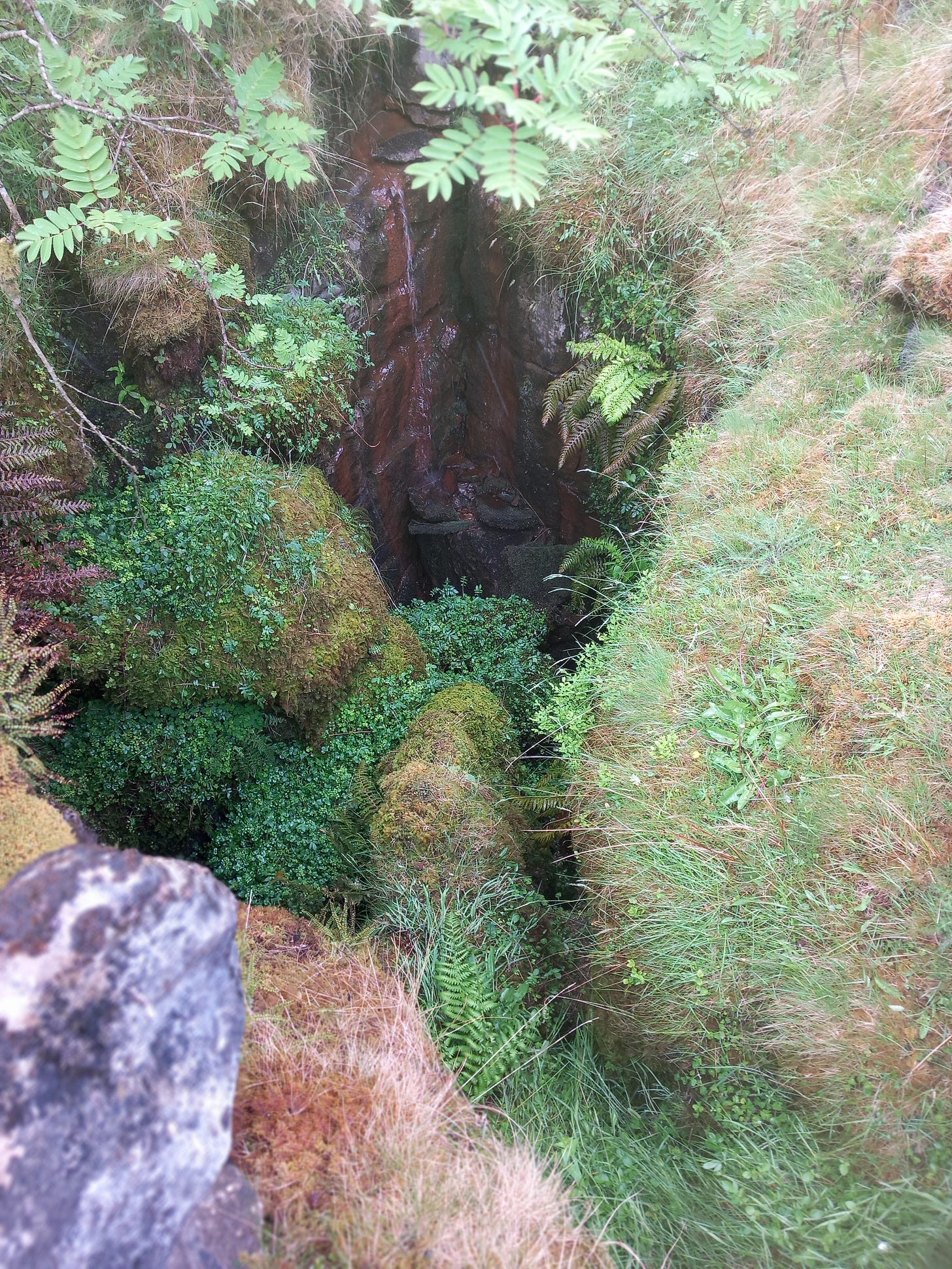It is more than a year now, since I began telling you tales of Mallerstang, the north-Pennines valley in which we live. Our creaky old house is down on the exposed limestone, the giver of so many gifts. Above us hang great waves of gritstone, rough to the touch. They are the remains of the geological overburden through which the River Eden cut to reach her calcareous grey lover, buried for an epoch. It rains, up on the tops. How it rains. The water percolating down through the thin black soil of the high edges grows sour and acidic. It, too, finds its way down to the limestone. In the darkness. And then its work begins.
Never begin a speech or a petition with an apology. That is the iron-clad rule of rhetoric. But needs must. I confess. I confess that I have been giving you only half the story. Barely half. A cauterised stump of the intimate narrative of this valley where we live. There was no malice. No deliberate attempt to deceive. It was just that I was forever looking skywards as I ran the high fells, sporting the latest hydration vest and fancy lightweight running shoes. Racing to catch the younger man I once was, half my age. Him always five steps faster up the rise. A long-stride landslide on the steep descents. I might as well have chased the wind.
It is a barbed melancholy, sweet and stinging hot, to pursue the absence of possibility, up on these ridges where the denuded land, treeless and stripped, offers everything to a glance. Has nothing left for an encore.
All the while I was failing to notice the sound reflecting up into the soles of my feet as they pounded the patient ground. Listen. No, you are not mistaken. The land is hollow. Run with me here on the undercliff of Nab Fell and together our footfall will ring a peal of bells in the belfry of a subterranean cathedral. Cloisters of vaulted limestone - ornate, their rococo pillars crafted meticulously, in situ - will echo the hammering of our hearts.
Here, on this terrace below the Nab’s sheer boulder slopes, the map’s contours break for lunch. Spread themselves out on the tormentil sward, and snooze. A halfway house, neither valley-bottom gossip nor high-fell mute. Invisible from the tracks and byways of daily life below. Unnoticed from the escarpments above, where the eye is seduced by the horizon, attention is ushered discreetly away by the dome of the sky.
It is here at the easing in the valley’s side that hard limestone water, so long underground, breaches the rolling surf of the Nab’s gritstone overburden like a pod of dolphins briefly sunlit in a breaking wave. Only to dive down deep again and surge onwards in secrecy to the far, far away of the sea. Leaving a line of sinkholes and swallows which dimple the heather-flushed cheeks of the level ground at Greystones Wold. From the top of Wild Boar Fell you might look down, see the little sunken circles way below and think of trout, lazily rising to a calm surface, just now and then, for mayflies.
Over the years possibility has deserted the high fells. She despaired at the no-tree sheep-nibbled nothing of the high tops and took her flashing eyes and long grey hair elsewhere. Maybe one day she’ll return. For now she lives nearby, in a luxury apartment of her own devising. At the bottom of Skint Gill Pot. You may not visit. In the great storm of 17121 she rained all hell onto the fellside and boulder-choked the entrance to her cave. Above her, a Ring Ouzel stands guard. His two-stones-chat of a challenge is best heeded. Unless you want your bones to rest by the skull of an old ewe at the bottom of possibility’s pot.
You may be inclined to feel sorry for her, down there in the deep. But don’t be sad. She is not alone. Bats bring the messages.2 Pale dwarf trout, their eyes pinked by generations in the darkness, dart and dance and tickle her feet. A mighty eel of a philosophical bent undermines the fallacy of time with decades of sophistry. Next year he will return to the ocean. Next year. There are spiders front of house, welcoming well-heeled gnats to a dining experience. Rowans and hazel, refugees from the blight and blast of the open fell, reach their roots into her and purr.
They say that sinkholes and swallows are never-to-return gateways to the otherworld. And maybe they are right. But I must run home now, over the ups and downs of this world, lovelorn and naked as she is. So I prefer to dream that possibility is just biding her time, gathering her strength at the bottom of Skint Gill Pot.
In 1712 Thomas Newcomen sold the first commercially viable steam engine, marking the start of the industrial revolution.
Commonly in Scotland, and less often in northern England, ‘going the messages’ is an idiom which means ‘to go and get the groceries’, or sometimes ‘to run an errand’. News and gossip inevitably hitched a ride on those who went the messages.







A lovely piece of writing. It makes me want to go out and run in the hills, listen to my footfall and imagine I can catch my younger self, still!
Welcome back! Things just haven’t been the same without you. I have had endlessly wonderful conversations with the juniper tree. I told the tale of Juniper Island, but in all honesty, I was the only one talking. I think you need to give yourself more credit, your company was much more preferred over mine. Well, at the very least, I sat quietly and held his branch in your absence.
“…the River Eden cut to reach her calcareous grey lover, buried for an epoch”. The photograph, she leaves the soft curves of her epitaph written in the stone as she passes .“Rowans and hazel, refugees from the blight and blast of the open fell, reach their roots into her and purr.” Truly, I feel like I am traveling through each and every sentence. Earth, river and sea. Another scene, a place with a magical name, horizons change , a story to tell . Your land sings in an ancient tongue and you are its scribe. “So I prefer to dream that possibility is just biding her time, gathering her strength at the bottom of Skint Gill Pot”. Thank you David, such visions . Continue to chase the wind and I will try to keep up.